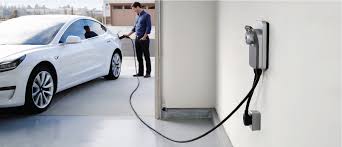The sudden emergence of Kermit the Frog as a box office draw is not an accident—it seems that everywhere, everybody is ‘going green.’ The term is shorthand for a movement of environmental awareness, and it involves everything from the way architects design new construction to the way HOAs recycle their waste.
Search the Directory of top companies being used today by condos and hoa’s all over Florida. sfpma.com
The movement began as an arguably quixotic attempt by activists to arrest global warming and help preserve the environment. But it’s now driven by a different kind of green—money. Going green doesn’t just appease the environmentally conscious; it impacts an HOA’s bottom line. Solar panels drastically reduce the cost of electricity. Better windows further reduce the amount of electricity needed. And then there’s the real estate values.
“There are all kinds of studies that show that, if you’re trying to sell the units, that they will sell quicker and for a higher market value when you can market it as a green, efficient building,” says Suzanne Cook, executive director of the Florida Green Building Coalition. “If you’re trying to rent the units, you will get higher leasing payments and higher occupancy.”
Let’s take a look at how South Florida residential buildings are going green.
Going Green…
Rare is the new residential building development that does not factor environmental concerns into its design. This includes everything from building materials and solar power to the direction the front door faces. The primary piece that has changed is that there’s a greater awareness of how we design the orientation of the building: where sun and shadow is, and where we can use mechanisms that are not necessarily green products, but green design techniques such as solar shades, where we extend the concrete slab out.”
At first blush, this may sound arbitrary, or else influenced a bit too heavily by feng shui. But there are very practical reasons for making the right choices with building orientation. “For example, on south-facing windows, in morning and afternoon sun, when the sun is low and perpendicular to the glass, that’s going to be a higher heat gain,” So you want to manage where you have that type of exposure.
Architect’s agree, “Anything that shades the window will help, like roof overhangs or canopies, so that the sun’s not shining directly in. Even shading the wall in general,” he says. “If you can keep the sun off the wall or the exterior enclosure, that will help the insulation not have to work as hard.”
These considerations are particularly important in the Sunshine State, where A/C, rather than heat, is the primary energy expenditure. “In Florida, the challenge is that we’re highly dependent on air conditioning, which uses a lot of energy.” So how do we solve the energy production issue? Do we begin to use fuel cells, or alternate methods like solar power that will help mitigate the consumption of power from our local utility? Questions of this sort keep an architect busy these days.
…and Everything Old is New
While Florida has always been, and remains, an epicenter of new construction, the lion’s share of residential buildings were built before the recent surge in green construction. This means that if an HOA wants to go green, it will have to retrofit a building rather than build one from scratch. This speaks to the core of the green movement.
“By the nature of adaptive reuse, or using an existing building, you not only have to look at how much energy is consumed during its operation, but also the energy that’s consumed by construction. So by starting with an existing building, you’re already at your first steps of doing something that’s environmentally friendly, because you’re reusing, instead of taking down and reconstructing.
How Does an Existing Building Go Green?
“When you’re trying to retrofit a residential property, the three primary focuses are to tighten the building envelope and make sure you don’t have leaks, to enhance the insulation, and to make sure the windows are energy efficient,” says Cook. “Those are the big ticket items. But those three things impact the systems of the building, so when you make it tighter and you enhance the efficiency of the insulation and the windows, you impact the size of the air conditioner [required to cool the property]. You actually need less tonnage.”
The bigger-is-better mentality is a trap that many HOAs fall into. We assume that a bigger HVAC unit is more powerful and perhaps more efficient, but that is not necessarily the case. “People tend to do all these retrofit things but they often don’t test their HVAC to see whether it’s the size they actually need,” says Cook. “When you have an oversized air-conditioner, you get all kinds of problems. The air exchanger won’t stay on long enough to get the moisture out of the home, so it feels clammy to the occupant. And while it doesn’t create mold, it gives mold a friendly atmosphere. So realizing that all of the systems with a structure affect each other, you have to really make sure that you understand that building science.”
Understanding that science can lead to big savings. “I recommend higher efficiency in the air conditioning systems, so you can get a higher SEER rating,” says Barry. “The semi-conditioned attic is a big point, because that brings the air conditioning ducts into a semi-conditioned space as opposed to a hot attic. This makes your air conditioning system not have to work as hard, so it’s more efficient that way. The ducts are not bleeding conditioned air into the exterior and sucking in hot humid air and putting it inside.”
New technologies are being placed in existing condo communities on a regular basis in order to cut energy use and reduce their carbon footprint. According to experts, advances are being made in mechanical, electrical and plumbing technologies that affect the types of heating and air conditioning systems that are being used on a daily basis. Boiler controls, cogeneration, solar, low flow fixtures and Energy Star appliances are all examples of improved technology.
Sometimes retrofitting means replacing. “In a lot of existing buildings, we find that removing and replacing the mechanical systems is a better strategy than trying to retrofit them. At the end of the day, there may be a slightly greater upfront cost, but the maintenance and long term operating costs will be much less. So we’re looking at how we update the building and its systems, not just to modify or modernize.
The prevailing wisdom is that “going green” means huge upfront expenses and massive overhauls. It’s not always the case. There are smaller changes buildings can make that also have an impact. Another place boards can look to save money on energy costs is lighting. The traditional “Edison” incandescent light bulb was of course a quantum leap forward from the use of candles, yet only 30 percent of the energy used by incandescent went toward the production of light; 70 percent was wasted as heat energy.
The newest generation of solid-state lighting lasts up to 25 times longer than a standard incandescent bulb and saves up to 80 percent more energy in comparison. Replacing common area lighting with LED [light-emitting diode] bulbs can prove to be cost effective over the long run by reducing both operating and maintenance costs.
“I always suggest upgrading the light bulbs to compact fluorescent, or if the budget permits, LEDs Mike Smith from BriteLED Lighting in Miami, a Member of SFPMA. “LEDs are great, because they’re energy efficient and they last for a long time. They cost quite a bit more, but because they don’t use as much electricity, your utility bills will go down. They also don’t put out as much heat, so your air conditioner doesn’t have to work as hard, which reduces the utility bill as well.”
In a similar vein, upgrading appliances can also save money. “Another smart idea is using energy-efficient appliances,” Mike says. “Washer-dryers, those types of things, they use a lot of electricity and they’re used regularly, so it’s better to go with something that has an Energy Star rating.”
Next Steps
Three and a half decades after President Carter famously installed solar panels at the White House, the noble idea of going green has started to make good financial sense. “I would say that we’re at a tipping point right now where there’s a common interest between the architect and the developer, We are seeing that the financial institutions, especially the institutional lenders, are wanting green elements in the project. We’re seeing that on the financing side, this is becoming more and more desired. Those institutions want the building projects that are responsible, as part of their mission.
In short, green is this year’s color—and will be the color for the foreseeable future. As more money is invested in green technologies, and more HOAs realize the money saved by it, the Sunshine State will soon be even greener than it already is.
“For me, the solution in Florida is finding alternative energy sources that are more environmentally friendly and have lower costs, such as fuel cells, solar and wind. We’re at the beginning of that now but with our air conditioning consumption, that’s where I think the future needs to be: looking at our energy options, versus just using infrastructure and building new infrastructure to accommodate it.
Greg Olear is a freelance writer we have used this article as a base and wish to thank Greg.
Tags:
Building Maintenance,
Management News










 While gasoline powered vehicles are still dominant on Florida’s roads, the ever-growing presence of electric vehicles cannot be ignored. The number of electric vehicles on our highways and streets continue to climb as they become more and more affordable. As consumers continue to embrace a greener lifestyle, Florida’s lawmakers have paved the way for condominium unit owners’ need to have access to electric vehicle charging stations. Effective July 1, 2018, new legislation, section 718.113(8) of the Florida Statutes, became effective which facilitates a unit owner’s ability to install and use an electric vehicle charging station within the unit owner’s limited common element parking space.
While gasoline powered vehicles are still dominant on Florida’s roads, the ever-growing presence of electric vehicles cannot be ignored. The number of electric vehicles on our highways and streets continue to climb as they become more and more affordable. As consumers continue to embrace a greener lifestyle, Florida’s lawmakers have paved the way for condominium unit owners’ need to have access to electric vehicle charging stations. Effective July 1, 2018, new legislation, section 718.113(8) of the Florida Statutes, became effective which facilitates a unit owner’s ability to install and use an electric vehicle charging station within the unit owner’s limited common element parking space.
 Lighting of Tomorrow is your one stop shop for all your lighting needs.
Lighting of Tomorrow is your one stop shop for all your lighting needs.


 Vandelay Communications is reaching out to all HOA’s across Florida to offer our services. Our company is building Electric Vehicle Charging stations across the country and Florida’s EV use is currently rising at the highest percentage across the country. Is your property prepared? Do your residents now and future have access to EV Chargers in their homes or parking garages?
Vandelay Communications is reaching out to all HOA’s across Florida to offer our services. Our company is building Electric Vehicle Charging stations across the country and Florida’s EV use is currently rising at the highest percentage across the country. Is your property prepared? Do your residents now and future have access to EV Chargers in their homes or parking garages?




 Reza Koosha-Mirsaidi
Reza Koosha-Mirsaidi
